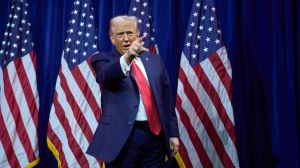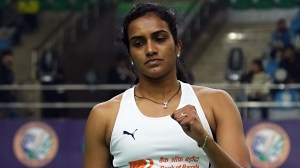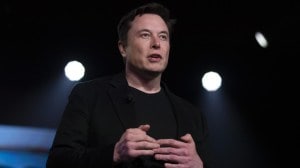Under new clothes, all146;s uniform
The Commonwealth Ministerial Action Group is reviewing Pakistan8217;s suspended membership of the 53-nation grouping of former British colo...

The Commonwealth Ministerial Action Group is reviewing Pakistan8217;s suspended membership of the 53-nation grouping of former British colonies this week. Pakistan was suspended from the Commonwealth after the 1999 military coup that brought General Pervez Musharraf to power. Commonwealth Secretary General Don McKinnon has indicated that the leaders of the grouping may be willing to recognise that there had been 8216;8216;productive changes8217;8217; under General Musharraf8217;s regime.
The Commonwealth requires its members to pursue democratic ideals. Pakistan8217;s reality has changed little since the last time the Commonwealth reviewed its suspension. The country continues to be run by a military general, major policies remain in the hands of the military and there are no signs of General Musharraf submitting himself to the will of the people. It would be unfortunate for Pakistani democracy if Britain8217;s desire to reward a loyal ally results in an endorsement by the Commonwealth of General Musharraf8217;s democratic pretenses.
Pakistan8217;s elections under military rule have not been completely fair, as was manifested once again during recent by-elections in Karachi. Political parties face constant meddling from the intelligence services. And General Musharraf8217;s alleged plans for democracy have no provision for a change of rulers.
Even after restoring a substantially changed constitution, Pakistan8217;s General-President has chosen not to seek election under that constitution, acting as if his own position is above the 8216;8216;new8217;8217; political dispensation that he claims to have created. One can understand Her Majesty8217;s government and its allies such as Australia feeling that they owe General Musharraf something for his cooperation since September 11, 2001. But must they pretend as if the country is moving towards genuine political change?
Accepting General Musharraf8217;s lame excuse of representative government as a democracy within days of India8217;s general election would be especially ironic. Although India and Pakistan both emerged as independent states from the British Raj together in 1947, their trajectories have been very different. Every transfer of power in India has been the result of an election whereas power has never changed hands in Pakistan through democratic means.
In fact, Pakistan is the only country in South Asia that has never had a democratic transfer of power ever. India, Bangladesh, Sri Lanka and even Nepal have all chosen and removed rulers through elections. Instead of following the South Asian tradition of democratic governance, Pakistan has fallen into the Middle Eastern mode of politics. The creation of the trappings of a democracy8212;a parliament, relatively free media, and political parties8212;without actually changing the nature of government is also something common to Pakistan and Western allies in the Middle East. Like the liberalised autocracies in the Arab world, General Musharraf allows some domestic criticism provided it does not threaten his and the military8217;s control over the levers of power.
Democracy usually is the product of a consensus among the elites of a nation. Pakistan8217;s elite, unfortunately, has made excuses for why the country cannot be fully democratic instead of forging a consensus on how to make democracy work.
National security concerns, lack of literacy and the incompetence or corruption of politicians are among the excuses devised to ensure that power remains in the hands of the military-bureaucratic elite in Pakistan. Unlike India, where technocrats operate within the political system, Pakistan8217;s technocrats have tended to ally themselves with the military. They take up ministerial positions, especially in the economic sphere, when the military is running the show directly. In interludes when an illusion of civilian rule is created due to internal or external pressures, Pakistani professionals and technocrats help the army in building its case for a coup d8217;etat by highlighting the weaknesses and failings of civilian-democratic institutions.
Like previous Pakistani military rulers, General Pervez Musharraf8217;s regime too has mixed political and economic reforms with expansion of the military8217;s role in government. During the last two years, Pakistan8217;s status as a semi-authoritarian state has been consolidated, not dramatically altered.
General Musharraf extended his presidency for five years through a massively rigged referendum in April 2002, the official results of which showed a 97.5 per cent vote in his favor. Parliamentary elections were held in October 2002 after the arbitrary introduction of 29 amendments to the constitution as a package known as the Legal Framework Order LFO. New qualifications for members of Parliament were introduced with the aim of excluding major opposition figures from the electoral process. The new Parliament was coerced into endorsing the LFO after a promise by the General to remove his military uniform by the end of 2004.
Religious parties in Parliament voted for the package of constitutional amendments only after the government withdrew the controversial provision of a military-dominated National Security Council NSC with broad powers. But the NSC was created any way, through legislation steamrollered through Parliament.
Pakistan8217;s 1973 constitution envisaged a parliamentary democracy with legal protections for civil liberties and against arbitrary arrest, detention without trial, and torture. But an overwhelming executive has systemically and routinely violated these constitutional protections. The judiciary is either helpless or, in some cases, complicit in allowing the executive to get its way. Judges are appointed by the executive on recommendations from the ministry of law, without any checks or balances.
The ministry also drafts new laws and decrees, sometimes with retroactive effect. The superior judiciary, including the Supreme Court and the provincial high courts, has sometimes been reshuffled arbitrarily so that the courts do not rule against the existing executive in constitutional matters, especially under military rule. Democracy and rule of law cannot flourish in an environment that allows one institution of state8212;the military8212;to be the final arbiter of national interest.
Instead of ignoring these realities, the Commonwealth should face them. General Musharraf8217;s role as a western ally should not blur his position as an un-elected military leader running a military regime under cover of a phased restoration of democratic rule. Aid from the US and other developed countries can continue to flow to a regime whose support is necessary in the war against terrorism. It need not be accompanied by the Commonwealth8217;s endorsement of military rule by other means as an embryonic democracy.
Husain Haqqani is a visiting scholar at the Carnegie Endowment for International Peace in Washington DC. He served as adviser to Pakistani Prime Ministers Benazir Bhutto and Nawaz Sharif and as Pakistan8217;s ambassador to Sri Lanka
- 01
- 02
- 03
- 04
- 05































